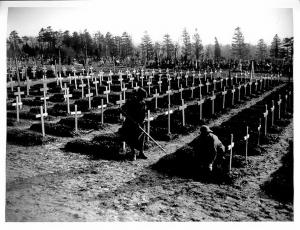
The 28th July 2014 marked exactly 100 years since the start of World War One. Although it could easily be argued that it should not take milestone anniversaries for people to reflect upon such significant historical events, the attention that will be gifted to the ‘Great War’ is, in our opinion at least, extremely important.
It is natural that over time people become desensitised and emotionally removed from even the most tragic periods of the past, so revitalising the topic is certainly a worthwhile exercise. It is too easy for the First World War, like any conflict, to become merely a subject in a history textbook and for those involved to become caricatures of themselves – goodies and baddies, heroes and villains.
There were over 37 million military and civilian casualties as a result of WWI. And yet, with the last surviving veteran passing away in February 2012 at the age of 110, it can be hard to evoke a personal connection with the scale of what too place in the middle of the 1910s.
Occasions for remembrance, such as this year’s centenary, help bring the topic to life – they offer a platform for events to be relived, a voice for fading stories to be heard. Among the commemorative events being organised are a vast number of museum exhibitions, a huge variety of talks and lectures, and a wide range of special documentaries and films being shown both in cinemas and on the TV.
In total it is estimated that the UK government will have spent in excess of £50 million on the WWI centenary. Moreover, there will be 2,500 hours of media coverage and entirely refurbished monuments to honour the occasion. At History Learning we believe that every penny and minute dedicated to this end is worthwhile.
“Those who forget the past are doomed to repeat it” – these are the famous words of George Santayana, a Spanish philosopher and they embody the point made in this blog.
The sheer scale of what happened between 1914 and 1918 might be well understood, but it is important that the First World War remains in the public consciousness, lest we allow ourselves to become disconnected with the events of the past which have so integrally shaped the present.
